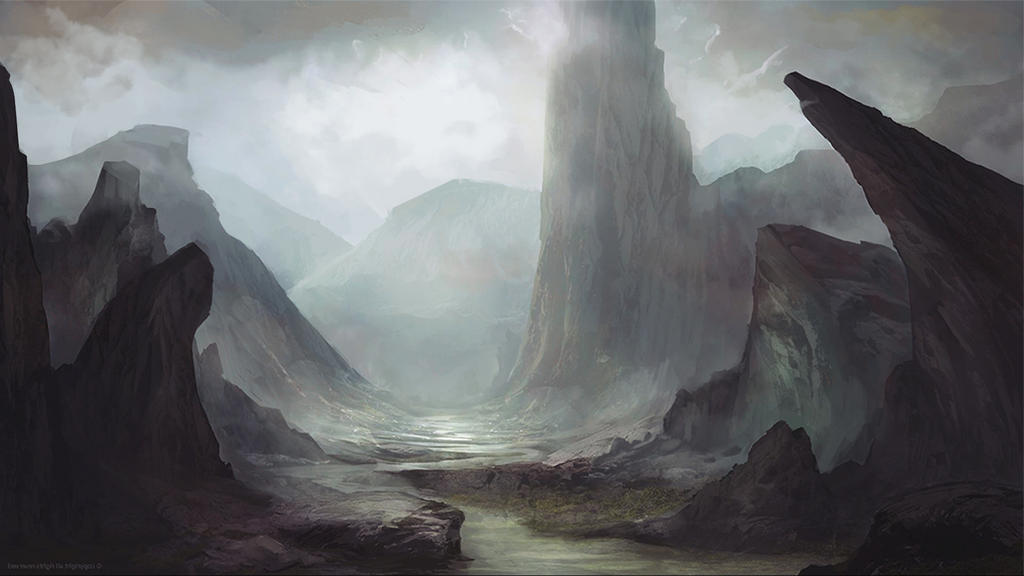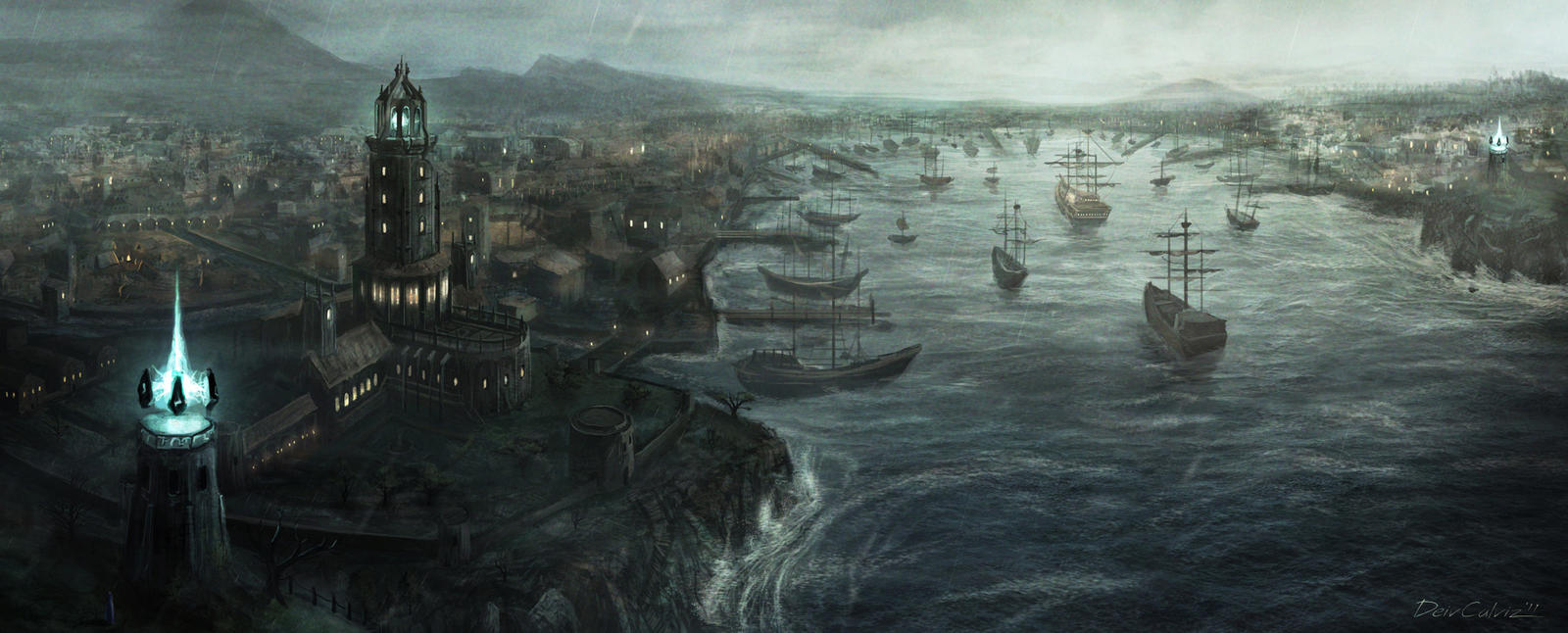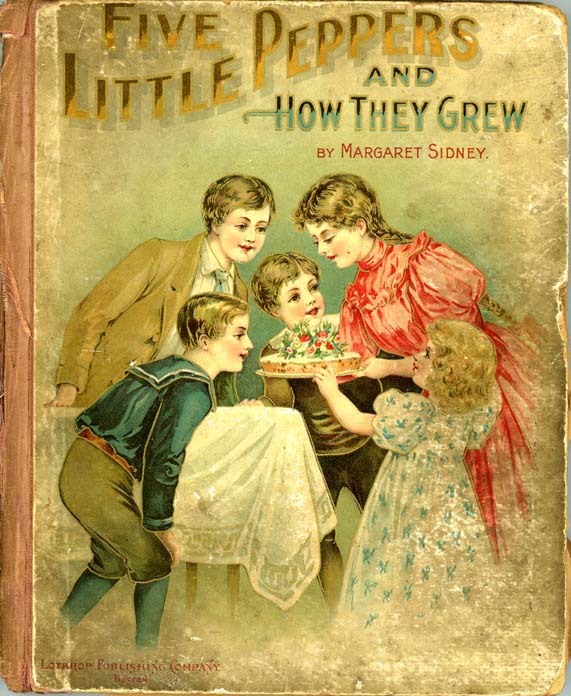 |
| Korsan Nasrok, "The Mage" |
Part 3
"Legends"

He wasn't opposed to waiting. Being a Mage meant
knowing what was going to happen much later, and finding contentment in
letting the present pass until it did. This time should not have been
any different.
Except he had not foreseen this particular event.
"Mage Korsan!"
His
guards announced his name—part of it—as they dragged him into the
court. The Royal Council in their silver-grey robes nearly blended into
the marble furnishings. They kept their hoods over their faces, the
illusion of an impartial, impassive governing body.
"You stand
accused of blasphemy, of false prophecies to undermine the authority of
this kingdom," said one of the councilors. "How do you plead?"
Korsan held his head high. They still feared him, feared the power he held if they had dared say his full name.
"I stand in support of the True King and his descendants!" He declared in a clear voice.
"The King is dead." The cold voice cut from the side of the room. "His family is scattered. The Royal Council rules the land."
"A
serpent with two heads straining in opposing directions will risk
devouring itself," Korsan replied. "How can a governing body lead as
one, when they are so divided amongst each other?"
"Do not question our competence!" Screamed a portly cloaked shape on the other side.
Korsan
kept his hands folded, fingering the talisman hanging from his belt.
The cool blue gem kept him from losing his temper entirely. "If it
pleases the court," he said slowly, "may I know of what I am being
accused?"
A murmur rippled through the assembly.
"You
have long dissented against the policies of civic order instituted by
this Council," droned another grey-robed individual, "and your
outrageous claims against the crown—not to mention your failed attempts
at prophecy—have prompted an inquiry into the true extent of your
patriotism."
The Mage raised an eyebrow. "And my effectiveness as a Mage, apparently."
The
presiding Councillor sniffed. "Yes, well, the late King Balwyn—angels
rest his soul—did engage in the propagation of questionable practices.
His faith in you was clearly misplaced—"
Korsan snorted.
"Clearly! Since the plague that swept the land did not harm those who
took my advice and sought the King's Healer—"
"She poisoned the King and Queen!"
"No!"
Korsan raised his hand and pointed, causing the councilors in the front
row to shrink backend cry out in alarm. "Your own Mage did this!"
"YOU
STAND ACCUSED OF TREASON AND YOU WOULD SPEAK THUS?" The Chief
Councillor bounded to his feet, his hands clenched and purple at his
sides, his body quivering.
Korsan felt the talisman surge in
warning; it would not do to enrage the high-strung council. Perhaps he
could eventually make them see reason. "Forgive me," he said, "it was
not my place—"
The High Councillor made an impatient gesture with his hands. "Take him away!" He spat.
The guards surged forward and grabbed Korsan by the arms. Once outside the main courts, they shoved him roughly forward.
Korsan
winced as the rough flagstones cut into his hands. Struggling to his
feet, he trudged toward his quarters in the tower to contemplate this
turn of events.
The Mage they hired to cure the
Royal Couple ends up killing them—nothing could convince him of the
widespread belief that the Healer was at fault—and now somehow this
implicated him as well? He had only prophesied according to his visions;
the King had heeded them wisely and well, changing his legislation
according to the projected effect Korsan would predict. King Balwyn had
done everything he could to ensure the people under his rule were
healthy and happy. The Royal Council, with all their formalities and
bluster, could never manage that level of leadership, nor even find it
within themselves to maintain the generous policies instituted by the
king. That left them ripe for being overtaken by other leaders, more
ruthless ones.
Speaking of other leaders...
Korsan
went to his window as the clatter of carriage wheels echoed in the
courtyard. Two young adults dressed in black emerged, and Korsan felt
his talisman pulse a warning. These two were bad news. He only hoped
that the Council would call him in so that he could see firsthand what
they wanted and perhaps negotiate to avoid any undue hostility.
Korsan
waited several hours, but no one came. Finally, late that night, just
before Korsan blew out the candle, he heard the heavy stomp of boots and
the creak of armor. A gauntleted fist pounded on the door.
"Mage Korsan, open up!"
Korsan stood, but before he had taken two paces, the soldiers threw open the door. He counted three of them.
"Korsan Nasrok, you are under arrest for the use of dangerous abilities which have been deemed a threat to the realm..."
Korsan
felt his knees buckle as the second soldier dragged his arms behind him
and the third clapped irons over his wrists. Arrested? Dangerous magic?
A threat?
Korsan looked up at the soldier dragging him from the room. "On whose authority—"
He
didn't see the mailed fist before it clouted him across the face.
"Silence! We have been warned of your silver tongue. You will not be
permitted to speak."
The soldier behind him coughed, and Korsan felt the warm spittle strike his neck as they hauled him to his feet.
"On the authority of the Twin Regents!" He gloated as they marched their prisoner down the hall.
Twins! Korsan recalled the prophecy he had received last season, but he had not understood it:
"Two will rise and Two will fall;
Brothers become outcasts, all;
The crown is lost, when crownless, Two,
The Regents take counsel from you."
He'd
seen it coming, and done nothing. Korsan hung his head; he'd known all
along, and yet he had believed the realm was not at risk. The word was
not "counsel" but "Council." The Royal Council now bowed to the wishes
of the crownless Regents—and the true Crown Prince had been missing for
some time.
Korsan emerged from his stupor when he heard the
moans of others. He looked up. They had passed the courtyard, and now
they were heading toward the back, lower levels of the castle: the
dungeons. Korsan watched as soldiers escorted whole groups of
people—citizens of the realm—toward the black hallway. Brothers being
cast out; why? Surely these people did not pose a threat like a real
Mage did?
Korsan stumbled forward as a boot caught him in the back. The prison guards stepped forward to haul him back to his feet.
"Korsan Nasrok," the lead guard announced. "Former Mage in the court of King Balwyn. Take him to the cells."
Korsan
saw his talisman pulse with light, then remain steadily bright. The
light seemed to enter his vision and course through his whole body.
Of
course! The soldier had no idea what he had just done; so far as he
knew, he had given the jailer the name of a high-profile prisoner. For
recording purposes, it had to be his full name.
The full name of a wizard.
Korsan
closed his eyes and pictured the locking mechanism on his cuffs. As the
guard hefted him by his shoulder, Korsan twisted the tumblers in the
lock. The heavy metal cuffs crashed to the ground. As the soldiers
hesitated in disbelief, it was enough time for Korsan to twist out of
their grip, sweeping his leg across theirs, sending them tumbling into
one another with a clash of armor. The noise stilled as Korsan made a
break for the castle gate. He had only to reach the top of the stairs—
Korsan stiffened and halted in his tracks.
Standing
in the courtyard, just beyond sight of the doorway leading to the
dungeons, were the Twin Regents! A boy and a girl, dressed in deep
black, staring at him.
"Captain!" Shouted the girl, after a moment of silence. "It appears one of your prisoners has escaped!"
The captain of the guard huffed up behind him and grabbed him. Korsan ceased struggling, as the lady continued to stare at him.
"You
know, brother," she addressed her pale twin, "this is just exactly the
sort of person we don't want in prison with the others." She giggled.
"Rather counter-intuitive to provide the outcasts with their very own
rebel instigator!"
Korsan felt his confidence surge. "I have seen my death, Lady; you cannot execute me."
A
smile played around her pale lips. "Who said that was my only option?"
She nailed the captain with her red eyes. "Escort the Mage to the midst
of the Wilderness. See that he is lost there. The Mage and all his kind
are hereby banished from the realm."
The twins turned and continued on to the throne room.
They
loaded Korsan into a windowless wagon after that. The only indication
of travel he had was the sound of the horses' harnesses and the sway of
the wagon. When they let him out, he stood in a corner of the kingdom
he'd forgotten existed. Fog lay thick, and cliffs ran high.
"Good riddance," growled the captain. Korsan watched the wagon retreat till the fog swallowed it up. He was alone.
~<>~
"Alone,"
Korsan repeated to the awestruck faces before him, "but not powerless. I
dreamed that night, and in my dream, I saw many people with strange and
wonderful powers, outcasts like you and me, shunned and forced into
hiding—but someday, when the Crown Prince returns to the castle, these
people will come forth and rise up, defying the stigma placed on them
and receiving acceptance in society."
Velora sat back and clacked her claws together. "So..." She mused slowly, "where is the Crown Prince, then?"
Korsan
opened his mouth to answer, but a moth fluttered into the cave. The boy
jumped back as if he had never seen one before, and even Korsan
examined it. This sort of moth should be out of season... He gently
cupped his hand around it. When he opened his fingers, he stared at his
empty palm.
Suddenly Velora was on her feet too, teeth bared
in a growl. "How did you get past my wolves? Who are you?" She demanded
of the shadows at the cave mouth.
One of the shadows peeled away, revealing a woman with straight hair, white as milk.
"I have come to warn you," she said.
~<>~<>~<>~<>~
Breathe in, breathe out.
Breathe in, pulse; breathe out, flicker.
Breathe in; breathe out.
Breathe in—
"YOWCH!"
"Jaran!"
"Sorry!"
Jaran let his head sag as Harlock rubbed his singed rump. He'd been
trying to master his control of the lightning all day, and had only
succeeded in making his charges too weak or too strong.
"I can't help that the only time I ever used my power, the Council was trying to get me to use stronger and stronger charges!"
Harlock
growled some profanity and looked at the rope in his hands. The string
of perfect knots had of course burned away in the flash, leaving him
with smoking, charred ends in either hand.
Erlis the Healer came to sit next to the young man. "When you think of your charge, what do you picture?"
Jalan
rubbed his eyes. "The storm," he muttered hollowly. "The way the
electricity spread out from my fingers and went everywhere—" he waved
his hand and a spark flew over Harlock's head to strike a tree.
"HEY!" He roared, throwing up his hands.
A
jet of water came with them, streaming straight at the flaming
branches. The fire extinguished as soon as it began. The trio stared at
the dripping branches.
Harlock stared at his hands. The fairy hovered over his shoulder, chattering away in her gentle bell noises.
"Well, that's new," Harlock stammered.
Jaran stared at him with wide eyes. "Do it again!" He cried.
Harlock
spread his hand, palm up, over the side of the dock. Slowly, a thin
string of water rose from the surface, swirling and winding upward to
caress his hand. Harlock moved it back toward himself, and with a gentle
flick of his fingers, the pool in his hand rose up in a trickling
fountain.
Erlis nodded. "Water manipulation," she mused. "You are gifted after all."
Jaran stared at him with wide eyes. "You mean there are more like me?"
Erlis eyed him carefully. "Did no one ever tell you?"
Jaran
shook his head. "They treated me like a biological anomaly; they
restricted my movements so no one would ever know there was something
wrong."
Erlis nodded. "It was easier to control you that way.
The truth is that there are many of us scattered throughout the realm,
gifted people with ability to do things beyond the scope of normal human
ability."
Harlock twisted his hand, and the water separated
from the stream, hovering over his palm in a round globe. "Or ones that
don't look normal," he cast a quick glance toward the scales on her
face.
Erlis nodded. "Those who didn't fit the mold were
relegated to lowly, hidden positions, away from the public eye. Some
were even turned into science experiments, their rights as citizens and
people forfeited because of their difference."
"Science
experiments?" Jaran felt a spark snake up his arm and burrow into his
neck. "The night I left... There was a woman... They told me she was
just a beacon, a test subject..." More sparks arced over his chest and
arms. "I caused her such pain!"
"Jaran!" Erlis warned, as Harlock edged away. "No doubt if she was empowered as you are, her gift protected her. Calm down!"
Jaran
found his pulse racing in time with the pulsing arcs. His breath came
in choppy gasps. He fought to control it, to slow it down. The arcs of
lightning thickened and slowed. Jaran clenched his fists and
concentrated on holding the charge in, grasping it tightly in himself,
pulling it back. The lightning responded, receding back into his body
like glowing worms. When he finally released his breath, the lightning
was gone, and he had not hurt or destroyed anything!
Erlis
nodded in approval. "You learn fast, young prince. Yes, that woman was
probably discarded by the Council as a nothing and nobody."
Harlock listened to the fairy, and nodded. "Then maybe it's time to prove them wrong."
~<>~<>~<>~<>~

The
boots still showed clearly, even in the midst of dozens of wolf prints.
They followed the boots, never wavering—almost as if the one wearing
the boots were their alpha. She pictured a tall man, carrying the suit
of woman's armor, marching at the head of a wolf pack. She shook her
head. It didn't fit. The next idea offered a young boy, one small enough
to wear the armor. It was less awkward than trying to picture a
full-grown man, but then that discredited the notion of Boots becoming
an alpha. There was no way a young boy could tame an entire pack, yet
maintain their savagery enough to obliterate an entire camp of innocents
like that. What if—
She stopped. The boots vanished from in
front of her. Standing over the last apparent pair, she gazed all around
for any kind of lift, or available surface within reach that did not
hold a print. Nothing even she could reach, and she doubted her quarry
could be more agile than she. She glanced back to see how her troop
fared. They crashed through the bracken some distance back, she could
hear them, but they were too far back to see.
"Captain!" She called.
The crashing continued, but no voices among it.
She retraced a few steps. "Captain!" She bellowed. Why wouldn't he answer.
"Madam Hunter!" She whirled as the call came from a completely different direction. She turned back the way she came—
But
the path of boot and wolf prints now stretched in a different
direction. The trees crossed in different directions than she expected.
She groaned and moved to the same spot she stopped at. Still, the trees
swayed and twigs snapped behind her. She stopped and closed her eyes and
listened. The steady pant of a wolf huffed below the crashing. She
opened her eyes and turned in that direction. Boots was still in the
forest? What luck! She leaped toward the sound of panting, rewarded with
the flurry of movement erupting in the bushes. She raised her eyes,
narrowing them to compress her field of vision. There in the shadows, a
hooded figure stood.
"Got you!" She snarled, lunging forward.
The
moment she landed, all sound ceased. There were no shadows, no rustling
bushes—worst of all, no prints. The very light was considerably darker
than it had been. She blinked very purposefully, and everything
flickered to life, a green daylight illuminating the black night.
Standing against the shape of a tree, she glimpsed a figure with white
hair. The Hunter lunged, catching the figure by surprise. Lights too
bright for her night vision danced over the stranger's fingers. An
Illusionist! The Hunter wheeled back too late. The Illusionist cast the
lights directly in her face, and when the Hunter's vision cleared, the
white-haired woman and her illusions were gone.
"NOOOO!" She screamed her rage to the moon. Frustrated, she turned back to rendezvous with her team.




















